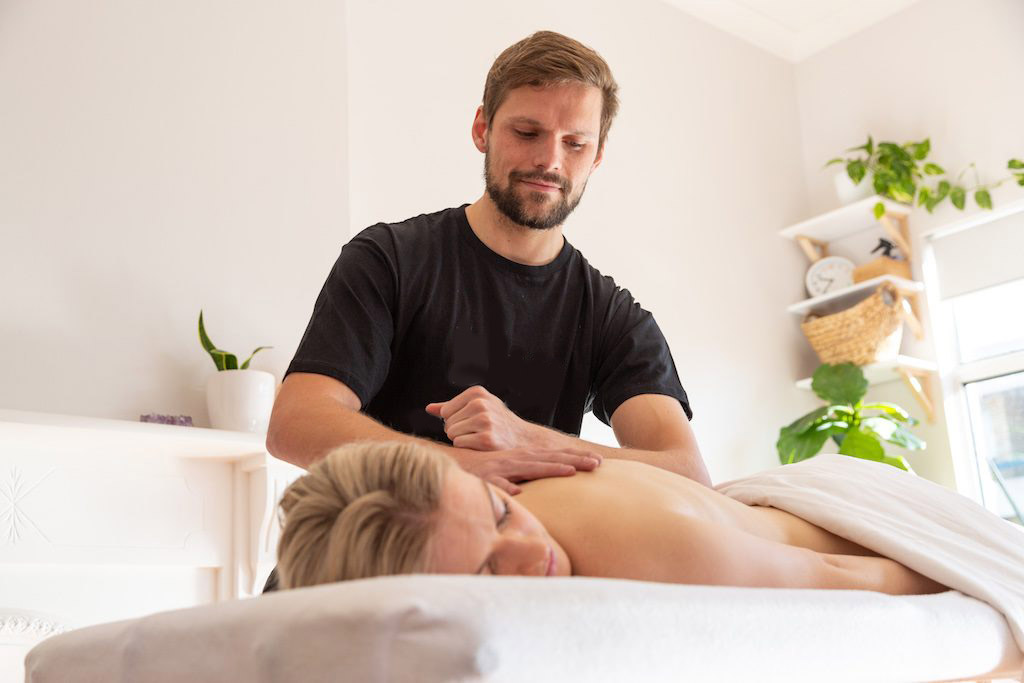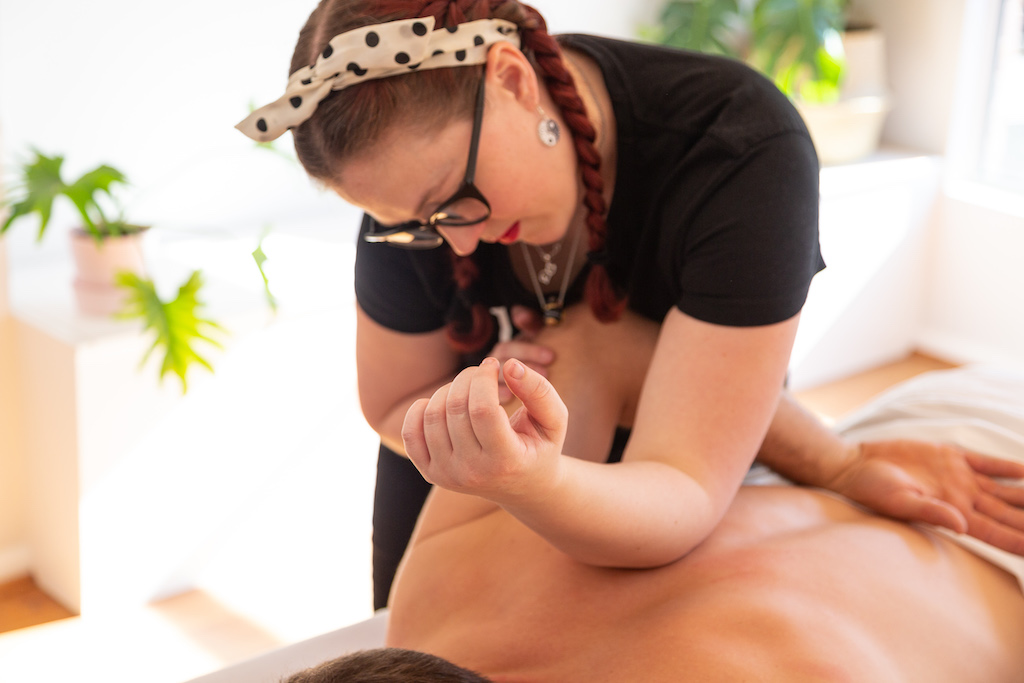What is a remedial massage?
In the same way that you take medication to cure an illness, remedial massages are an effective treatment for the treatment of various pains and injuries.
The term “remedial” comes from the Latin “remedium”, signifying “cure, medicine”. The principle is straight-forward: a remedial massage is a clinical approach to soft tissue damage (muscles, tendons, ligaments and connective tissues) to assist in rehabilitation, pain and injury management.

To get to know the differences between Remedial massage and Swedish massage, check out this blog post.
The trained practitioner will take you through a detailed assessment during which you will be asked about all the aches and pains you are experiencing in day to day life. This way, they will be able to determine which muscle or muscle groups are causing the problem. Then, using a range of techniques discussed below, the therapist will be able to target specific problem areas, loosen the knots in your muscles, and increase fluid circulation in order to lead your body to full recovery.
In what circumstances are remedial massages beneficial?
Ok, say you get up a bit late one morning but still need to fit in your daily Bay run down in Iron Cove before work, but having woken up a little bit later than usual, you decide to skip an integral step in your workout schedule: the warm up (don’t do that, by the way!).
Inevitably, some form of injury is likely to ensue. Maybe you pull a muscle, or damage a ligament.

It’s not serious enough to waste yours and your GP’s time, but it’s still giving you enough discomfort that you’d consider taking a couple of Neurofen to ease the ache.
For this sort of injury, we recommend a Blys remedial massage. You book yourself an hour-long massage with a trained massage therapist.
Remedial massages are designed to treat aches, pains, knots, and any change in muscle structure that is causing you discomfort.
What do remedial massages remedy?
Put simply, the purpose of this type of massage is to treat injuries to the ligaments, tendons, muscles or other connective tissues, or to rehabilitate those suffering from chronic pain. These are the injuries one might sustain in everyday life, by exercising too much or too little. One of the benefits of remedial massages are that they improve blood flow and lymph, particularly in injured areas; this promotes healing by removing blockages, dead cells, and scar tissue.
What types of techniques are used in remedial massage?
Here’s a non-exhaustive list of different techniques and what they entail:
- Trigger point therapy: Releases pain in the fascia or skeletal muscles.
- Ischaemic Compression: Promotes healthy circulation of blood and lymph.
- Cross Fibre Friction: Increases healing time by reducing adhesions to fibrous tissues.
- Myofascial Release: Focuses on treating muscular tightness and shortness.
How is that different to a Sports Massage?
Whereas a sports massage is designed to shorten recovery time following a sporting event, where an injury is not necessarily present, remedial massages act as a form of treatment targeting either a specific pain or to provide overall therapy to a tense body. So to recap, whilst sports and remedial massages complement each other, the latter tend to focus on muscle recovery, whereas the former is excellent for joint mobility and continuing muscle growth (they’re also a bit more intense!).
Does it hurt?
Let’s just say that if you’re looking long smooth strokes and intend to come out de-knotted and relaxed, this is not the massage you are looking for!

Unlike all other massage techniques, remedial massages are founded on a clinical approach. The idea is to treat pains and aches. So, it stands to reason that some of the therapies should be more painful than others. Obviously, don’t let it bring you to tears, but be aware that techniques like trigger point therapy, especially when the muscle in question requires deeper intervention, might get quite uncomfortable. You might find that some of the discomfort lasts up to 48 hours in some cases; this is no cause for concern. You’ll feel 100% better when the pain subsides, guaranteed!
I don’t have any pain or injuries, can I still get a remedial massage?
Because of its clinical nature, it’s unlikely that remedial massages will benefit those who aren’t suffering from some kind of pain. Your injury doesn’t have to be severe, or even moderate. For instance, if you are a desk-worker and frequently use a computer, you might find that you are suffering from chronic pain in your lower back, headaches, and possibly some unidentified aches in your wrists. These are exactly the type of circumstances for which a remedial massage would be beneficial.
Is it safe?
Yes. Totally. Remedial massages can be done on people of all ages, shapes and sizes, without any risk to you. Therapists are specially trained in anatomy and pathophysiology and have a diploma in remedial massage therapy.
Where can I get it? Is there a remedial massage therapy near me?
Typically you would need to go to a clinic to get a remedial massage – however, with a mobile massage service like Blys, you can get a professional remedial massage delivered to your door in as little as an hour. Blys has made booking a massage in Sydney a breeze. Stop searching up “book massage online” – head straight to Blys!



